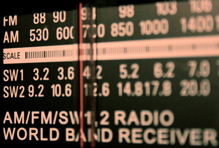Many thanks to SWLing Post reader, Richard Cuff, for sharing this article from The Straits Times which interviews our friend Victor Goonetilleke. This is one of the first articles I’ve seen in the international press which gives a listener’s perspective on recent cuts to shortwave broadcasting.
 (Source: The Straits Times)
(Source: The Straits Times)
For 67-year-old Victor Goonetilleke, sitting with his headphones on in his house in the lush green Sri Lankan countryside, June 30 was the end of an era.
Voice of America’s (VOA) short-wave broadcasts to Asia abruptly went off the air, raising howls of protest from many of the US government-funded broadcaster’s listeners across the region.
But as the broadcasts had already been greatly diminished, this was not a surprise. The big Western radio broadcasters have gradually ceded the political “soft power” space they once dominated to a new heavyweight: China Radio International (CRI).
In recent years, Radio Canada International and Radio Netherlands Worldwide have shut down while the British Broadcasting Corporation (BBC) and VOA have cut back on their range of languages and hours of programming. Now, the VOA has left Asia.
Mr Goonetilleke is not just an avid radio listener. He professionally monitors radio frequencies for the VOA. He is also a former veteran radio correspondent with Radio Netherlands for 24 years in an era when short-wave radio broadcasts from the likes of the BBC, VOA, Radio Netherlands, and Deutsche Welle were often lifelines to other worlds for hundreds of millions especially in times of conflict and misery.
The BBC now broadcasts in 29 languages across the planet, down from a peak of 69 in the 1970s. CRI broadcasts in 65, up from a reported 43 in 2006. Some programmes are run by local FM stations.
These days, Mr Goonetilleke can listen to four hours of CRI broadcasts in Sinhala and Tamil daily, compared with 30 minutes each on BBC.
CRI’s Tamil language broadcast is one of its oldest, run by fluent Tamil speaker Zhu Juanhua, a Shanghai native better known by her tens of thousands of listeners as Kalaiarasi.
According to the CRI website, it has 3,165 listener clubs around the planet, including CRI netizens’ clubs.

The Western short-wave broadcasters were, for decades, “the strongest signals on international radio”, says Mr Goonetilleke.
“Now, on the Internet, they are just one voice among millions.”
The above statement, for me, effectively sums up why it is a mistake for western broadcasters to leave shortwave.
Dave
AA7EE